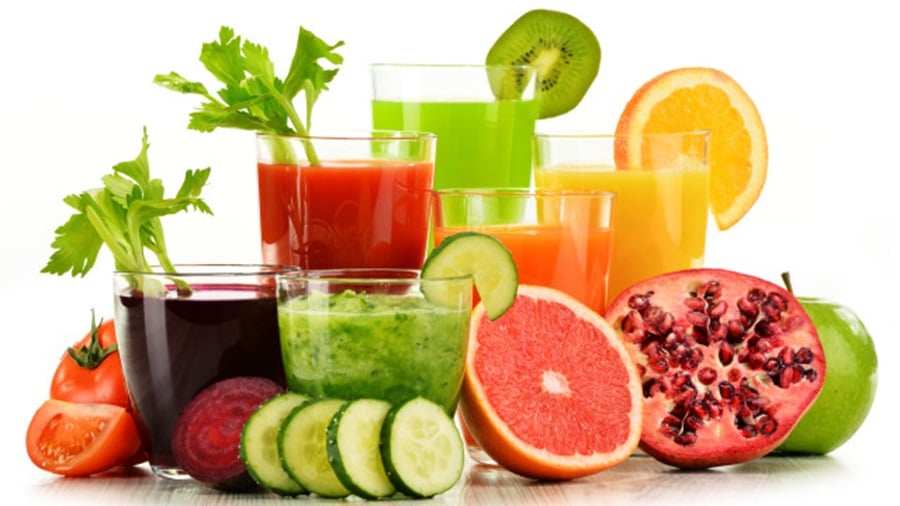As you age, your body undergoes significant changes, not least a shift in your nutritional needs. After age 50, these changes become more pronounced and require a conscious effort to adapt your dietary habits. Eating well during this phase is not just about staying in shape but is vital for overall health and well-being. A good diet can boost energy levels, improve mental acuteness, and enhance resistance to illness. It can even help manage chronic health problems and improve mood.
Contents
- The Importance Of Eating Well As You Age
- Tips For Eating Well In Your Golden Years
- Navigating Dietary Changes
- Maintaining Hydration
- Importance Of Protein-Rich Foods
- Fruits, Vegetables, And Fiber
- Calcium And Vitamin D For Bone Health
- The Role Of Regular Exercise
- The Importance Of Eating Well While Aging Is Immense
- Related
The Importance Of Eating Well As You Age

As you cross the threshold of 50, your body begins to show the signs of aging. Metabolic rates start to slow down, and muscle mass gradually decreases, making us more susceptible to weight gain and chronic diseases. At this stage, it becomes all the more critical to embrace a balanced diet that takes into account these changes and supports overall health.
Additionally, there’s an increased need for certain nutrients as you age. Calcium becomes vital to prevent osteoporosis and maintain bone health, while fiber is essential for a healthy digestive system. Vitamins like B12, D, and E, along with other minerals, play a crucial role in boosting immunity, maintaining good vision, and preventing heart disease.
Tips For Eating Well In Your Golden Years
Navigating the golden years of your life requires a conscious commitment to healthy eating habits. Prioritize nutrient-dense foods in your meals, like fruits, vegetables, lean meats, and whole grains. These foods are packed with essential vitamins and minerals that your body needs to function optimally. On the other hand, limit the intake of processed and high-sugar foods, which can lead to weight gain and other health problems.
Proper portion control is another key aspect of eating well in later years. As you age, you don’t require as many calories, and overeating can lead to obesity and associated diseases. It’s crucial to understand serving sizes and ensure you’re getting a balanced meal without overindulging.

Aging should not be a barrier but rather a catalyst to switch to healthier food choices. This doesn’t necessarily mean making drastic changes overnight but rather implementing gradual modifications that can be sustained in the long run. Start by incorporating more fruits, vegetables, and lean proteins into your meals while reducing processed foods and added sugars.
Moreover, listen to your body and adjust accordingly. If certain foods aren’t sitting well with your digestive system, find alternatives that provide similar nutritional benefits. Remember, dietary changes should work in tandem with your lifestyle, preferences, and health conditions.
Maintaining Hydration

While focusing on food, it’s easy to overlook the importance of staying hydrated. As you age, your sense of thirst can decrease, making it easy to forget to drink enough water. However, hydration plays a crucial role in digestion, nutrient absorption, and overall bodily functions.
Aim to drink at least 8 cups of water per day. And remember hydration isn’t just about water. Foods with high water content, such as cucumbers, watermelons, and oranges, can also contribute to your hydration levels. Avoid excessive consumption of dehydrating drinks like coffee and alcohol, which can lead to further loss of fluids.
Importance Of Protein-Rich Foods

Protein is an essential nutrient that helps maintain muscle mass, a critical consideration as you age. It aids in tissue repair and recovery from illnesses, making it vital for a healthy diet. Aim to include lean sources of protein, such as fish, chicken, and beans, in your meals.
Simultaneously, be wary of protein sources high in saturated fats, such as certain cuts of red meat. These could increase your risk of heart disease. Hence, balance is key – ensuring adequate protein intake while still maintaining a diet low in saturated fat.
Fruits, Vegetables, And Fiber

Incorporating a variety of fruits and vegetables into your diet can greatly benefit your health as you age. They are rich in vitamins, minerals, and antioxidants that boost the immune system, promote good eye health, and help fight off diseases. Additionally, they are low in calories, making them a great choice for weight management.
Fiber, commonly found in fruits, vegetables, and whole grains, plays a key role in digestion. It aids in maintaining bowel health, lowering cholesterol levels, and controlling blood sugar. As such, strive to consume a high-fiber diet to keep your digestive system in good shape.
Calcium And Vitamin D For Bone Health

The importance of calcium and vitamin D cannot be overstated when discussing nutrition for those over 50. These nutrients are crucial for maintaining bone health, and their adequate intake can prevent osteoporosis, a common condition in older adults. Dairy products, leafy green vegetables, and fortified foods are rich sources of calcium, while vitamin D can be obtained from exposure to sunlight and from foods like fatty fish and egg yolks.
It’s worth noting that absorption of these nutrients decreases with age, making it even more important to ensure you are getting enough from your diet. Consult your healthcare provider about possible supplements if you are unable to meet your needs through food alone.
The Role Of Regular Exercise

While diet is a significant factor in maintaining health as you age, it’s only one piece of the puzzle. Regular physical activity complements a balanced diet, contributing to weight management, muscle mass preservation, and improved mental health. Whether it’s walking, swimming, cycling, or practicing yoga, find an activity you enjoy and make it a part of your daily routine.
Exercise not only helps you feel more energetic and agile, but it also aids in digestion and helps regulate appetite. It’s a synergy of eating well and staying active that results in overall well-being and longevity.
The Importance Of Eating Well While Aging Is Immense
Aging gracefully isn’t just about looking good; it’s about feeling good and staying healthy. And that starts with eating well. As you cross the age of 50, your nutritional needs evolve, and it’s crucial to adapt to these changes to maintain optimum health. With conscious eating habits, adequate hydration, and a balanced diet rich in essential nutrients, you can support your body through this significant phase of life. Remember, it’s never too late to make changes to your diet, and every step toward healthier eating is a step toward a healthier you.


